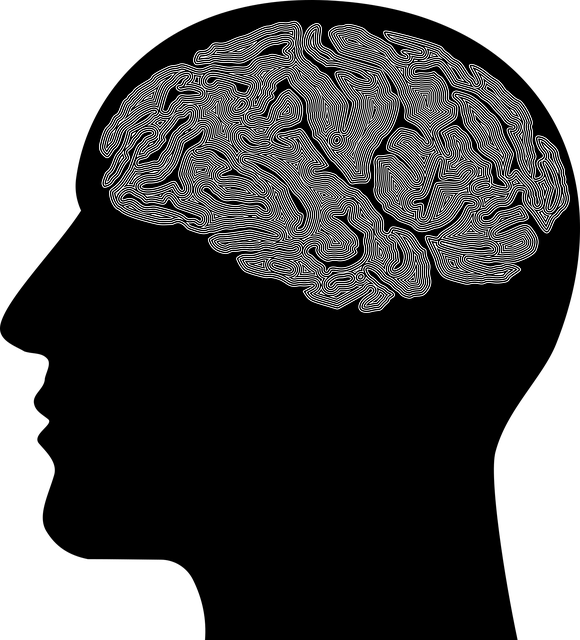Substance abuse, especially among individuals with pre-existing mental health conditions like Broomfield OCD Therapy, carries significant risks. Understanding these risks is key to prevention. Strategies include building resilience, managing stress, and mindfulness, along with supportive home environments and healthy coping mechanisms. Broomfield OCD Therapy offers comprehensive solutions, integrating OCD treatment with compassion cultivation to combat addiction alongside co-occurring mental health issues. Developing effective coping mechanisms through stress management, meditation, journaling, balanced lifestyles, and reducing mental illness stigma are vital for risk reduction and lasting recovery.
Substance abuse carries significant risks, affecting individuals’ physical and mental health, relationships, and overall well-being. Understanding these dangers is the first step towards change. This article explores comprehensive risk reduction strategies, focusing on personal risk factor identification and evidence-based solutions. We delve into creating supportive environments, leveraging professional help like Broomfield Obsessive Compulsive Disorder (OCD) Therapy for effective treatment, and adopting healthy coping mechanisms and lifestyle changes to foster recovery and prevent relapse.
- Understanding Substance Abuse and Its Risks
- Identifying Personal Risk Factors
- Creating a Supportive Environment at Home
- Seeking Professional Help: Broomfield OCD Therapy as an Effective Tool
- Developing Healthy Coping Mechanisms and Lifestyle Changes
Understanding Substance Abuse and Its Risks

Substance abuse is a complex issue that involves the harmful use of drugs or alcohol despite negative consequences. It can range from recreational use to full-blown addiction, posing significant risks to both physical and mental health. Understanding these risks is crucial in adopting preventive measures, especially for those struggling with underlying conditions like Broomfield Obsessive Compulsive Disorder (OCD) Therapy. The impact of substance abuse extends beyond the individual, affecting families, communities, and society at large.
Risk reduction strategies are essential to mitigate potential harm. Building resilience and confidence is a proactive approach; individuals can learn to manage stress and triggers effectively, thereby reducing cravings and preventing relapse. Additionally, burnout prevention techniques, such as mindfulness and self-care practices, can help those at risk maintain their mental fortitude. By addressing these aspects holistically, individuals equipped with the right tools can better navigate challenges related to substance abuse, fostering a healthier and more sustainable lifestyle.
Identifying Personal Risk Factors

Identifying personal risk factors is a crucial step in developing effective strategies for substance abuse prevention. Individuals with pre-existing mental health conditions, such as Broomfield Obsessive Compulsive Disorder (OCD) therapy, are at a heightened risk of turning to substances as a coping mechanism. This makes it essential to understand the unique challenges these individuals face and provide tailored support. By recognizing personal triggers and vulnerabilities, one can begin to navigate towards healthier coping mechanisms.
Mental wellness coaching programs development often incorporates confidence-boosting techniques and emotional well-being promotion methods to empower individuals in managing their mental health effectively. These strategies not only help in reducing the likelihood of substance abuse but also foster a sense of resilience and self-control, enabling individuals to make informed choices regarding their health and overall well-being.
Creating a Supportive Environment at Home

Creating a supportive environment at home is a crucial component of any risk reduction strategy for substance abuse. This involves fostering an atmosphere that promotes open communication, understanding, and access to healthy coping mechanisms. Family members can play a significant role in preventing relapse by engaging in regular self-awareness exercises and practicing emotional intelligence. These practices help individuals recognize triggers, manage stress, and build resilience.
Implementing self-care practices within the home environment is also essential. This includes setting aside dedicated time for relaxation, engaging in physical activities, and maintaining a structured routine. By integrating these strategies into daily life, individuals can enhance their overall well-being and reduce the allure of substance abuse as a coping mechanism. For those dealing with conditions like Broomfield Obsessive Compulsive Disorder (OCD) therapy, creating such an environment at home is not just beneficial but necessary for long-term recovery and improved quality of life.
Seeking Professional Help: Broomfield OCD Therapy as an Effective Tool

For individuals grappling with substance abuse issues, seeking professional help is a pivotal step towards recovery. Broomfield OCD Therapy offers a unique and effective approach to address underlying mental health conditions that often coexist with addiction. Obsessive-compulsive disorder (OCD) therapy focuses on understanding and managing intrusive thoughts and behaviors, providing valuable tools for those struggling with substance abuse. By integrating compassion cultivation practices into treatment plans, therapists foster a sense of self-compassion and empathy, which is essential for overcoming the challenges associated with addiction.
The comprehensive nature of Broomfield OCD Therapy goes beyond individual therapy sessions. It includes innovative community outreach program implementations that create supportive networks, encouraging peer-to-peer support and shared experiences. These programs facilitate open dialogue, promote healthy coping mechanisms, and empower individuals to maintain long-term recovery. Effective stress management techniques are also integral to the therapeutic process, enabling clients to navigate triggers and cravings more effectively.
Developing Healthy Coping Mechanisms and Lifestyle Changes

Developing healthy coping mechanisms is a cornerstone of reducing risks associated with substance abuse. It involves learning and adopting new strategies to manage stress, emotions, and triggers that might lead to substance misuse. This can include engaging in self-awareness exercises like meditation or journaling to better understand one’s feelings and thoughts, which are essential components of Broomfield OCD therapy. By increasing self-awareness, individuals can identify early signs of distress and implement healthier response patterns.
Lifestyle changes play a significant role in risk reduction. This encompasses adopting a balanced diet, engaging in regular physical activity, and prioritizing quality sleep. These habits not only contribute to overall well-being but also serve as powerful tools in managing mental health conditions, including those often associated with substance abuse such as anxiety and depression. Mental illness stigma reduction efforts can further encourage individuals to seek support and engage in therapeutic processes, facilitating emotional healing and fostering a healthier relationship with coping mechanisms.
Substance abuse is a complex issue, but understanding personal risk factors and implementing effective strategies can significantly reduce harm. By creating a supportive home environment, identifying triggers, and seeking professional help like Broomfield OCD therapy for underlying mental health conditions, individuals can foster positive change. Healthy coping mechanisms and lifestyle adjustments are key to long-term recovery. Remember, early intervention and access to resources like Broomfield Obsessive Compulsive Disorder (OCD) Therapy can make all the difference in navigating and overcoming substance abuse challenges.














